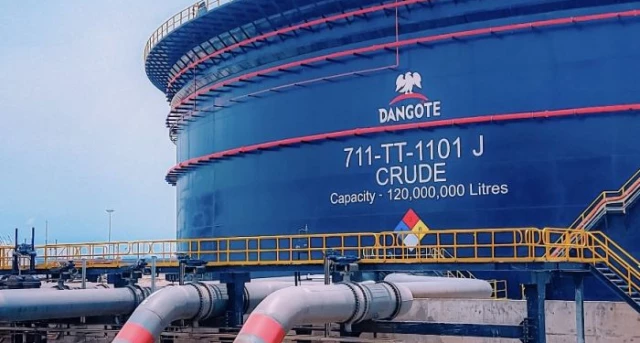The Federal Government has announced that Nigeria has officially commenced the sales of crude oil and refined petroleum products in Naira.
The Minister of Finance and Coordinating Minister of the Economy, Wale Edun, over the weekend said that in line with the Federal Executive Council (FEC) directive, the sale of the products in Naira commenced on October 1.
This was disclosed in a statement by the Director of the Information and Public Relations, Ministry of Finance, Mohammed Manga.
The statement said, “Following a meeting of the Implementation Committee, Chaired by the Honourable Minister of Finance and Coordinating Minister of the Economy to conduct a post-commencement review of the Crude Oil and Refined Products Sales in Naira initiative, the commencement of this strategic initiative was affirmed by key stakeholders.
“The meeting brought together prominent figures, including the Honourable Minister of State, Petroleum (Oil), the Special Adviser to the President on Revenue, the Special Adviser to the President on Energy, the Chief Executive of the Nigerian Midstream and Downstream Petroleum Regulatory Authority (NMDPRA), the representative of the Chairman of Dangote Group, the Vice President of Dangote Group, and the management of the Nigerian National Petroleum Company (NNPCL), led by the Group Chief Executive Officer (GCEO), Chief Financial Officer (CFO), and Executive Vice President (Downstream).”
Manga noted that the strategic initiative and bold step taken by President Bola Tinubu-led administration was expected to have a lasting impact on Nigeria’s economy, enhancing growth, stability, and self-sufficiency.
He added that the country continued to navigate the complexities of global markets, and the strategic move positions Nigeria for success in the future.
The move comes about nine weeks after the FEC approved a proposal by Tinubu directing the NNPC to sell crude oil to Dangote Petroleum Refinery and other refineries in Naira.
The Federal Government had said the sale of crude oil to the Dangote refinery and other refineries in Naira would commence on October 1.
The policy aims to stabilise pump prices, potentially resulting in lower and more predictable fuel costs for consumers.
With transactions in Naira rather than dollars, the pressure on foreign exchange reserves would ease, leading to the stabilisation of the Dollar-Naira exchange rate and control inflation.
It would also increase the capacity of local refining that will in turn reduce dependence on imported fuel, saving billions of dollars that can be reinvested into other areas of the economy.
The government’s move would also boost local refining capacity to strengthen Nigeria’s energy security by ensuring a more reliable and self-sufficient fuel supply.




















